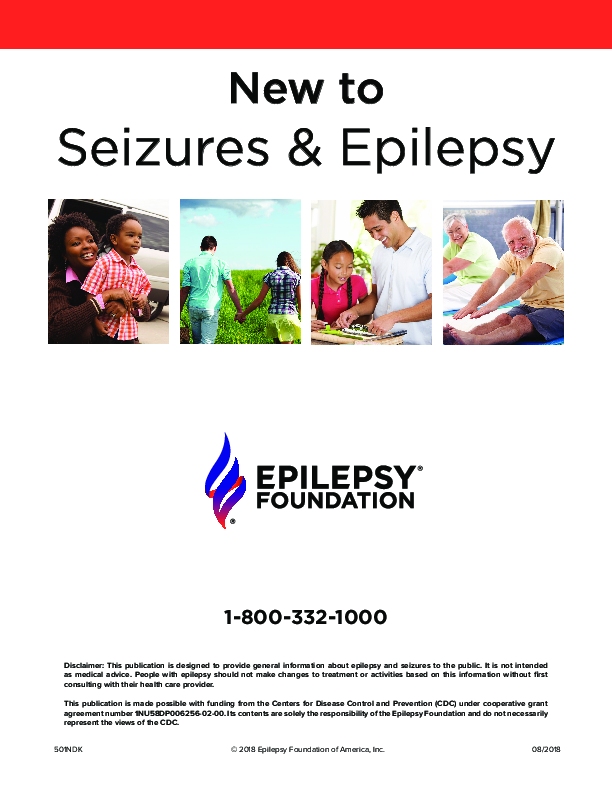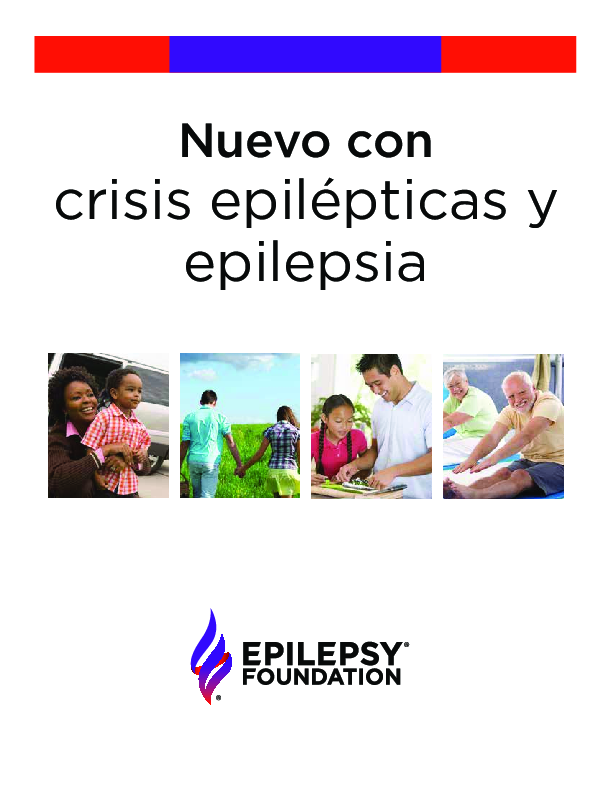New to Seizures and Epilepsy

Download the New to Seizures and Epilepsy Toolkit
If you’re new to seizures and epilepsy, this toolkit provides information, resources, factsheets, and more.
Hearing about seizures and epilepsy for the first time can be frightening and confusing. For someone recently diagnosed, a caregiver, or a loved one, the New to Seizures and Epilepsy Toolkit is a great resource and starting point. This toolkit provides information on what epilepsy is, what resources are available, how to make the most out of doctor visits, and more.
Download the toolkit in English or Spanish:
What Is in the Toolkit?
How We Can Help
The Epilepsy Foundation's Epilepsy & Seizures 24/7 Helpline provides compassionate telephone and email support, guidance, and referral to national and local resources.
Community Education Programs
Everyone should know what to do when a seizure happens. Epilepsy and seizure first aid training is available through local offices and our website. Training is available for individuals and those in specific careers.
Managing Your Epilepsy
Find tips and information on the importance of managing stress, taking medications as prescribed, and knowing your seizure triggers. These tips will help you manage your epilepsy and improve seizure control.
Self-Management Tools
Learn more about the resources that people living with seizures can use to help manage their epilepsy.
Healthcare Visits
Getting good medical care for epilepsy and seizures is a team effort. You are the most important member of the team! You want answers, and your doctor needs information from you, too. This section of the toolkit explains how you can take an active role in your health care.
Dare To Say Sudden Unexpected Death in Epilepsy (SUDEP)
This section of the New to Seizures and Epilepsy Toolkit talks about sudden unexpected death in epilepsy (SUDEP), knowing your risk, tips for taking control of your seizures, and the importance of talking about SUDEP with healthcare professionals, family members, and peers.
Seizures and Safety
Depending on the type of seizure, people may fall or hurt themselves in a variety of ways. Cuts, burns, bumps, and bruises can happen. More serious injuries can happen too, especially if someone falls and is not aware of what’s going on around them. Get tips for preventing injuries and staying safe.
Seizure First Aid Poster
Whether you are new to seizures as a person living with epilepsy or as a caregiver, knowing seizure first aid and telling others what to do in the event of a seizure can help to prevent injuries and potentially save lives. This poster includes first aid for all seizure types and includes information on when to call 911.
Understanding Seizures and Epilepsy
Find answers to basic questions about epilepsy, including:
- What causes epilepsy?
- Who has epilepsy?
- How is epilepsy diagnosed and treated?
- What are some of the common types of seizures?
Seizure Action Plan Form
Having a seizure response plan available for schools, workplaces, or even to carry on-hand can be helpful in making sure that an individual receives the best care in the event of a seizure. Bring the form to your next doctor's visit and create a custom plan for your needs.
Resources
Epilepsy Centers
Epilepsy centers provide you with a team of specialists to help you diagnose your epilepsy and explore treatment options.
Epilepsy Medication
Find in-depth information on anti-seizure medications so you know what to ask your doctor.
Epilepsy and Seizures 24/7 Helpline
Call our Epilepsy and Seizures 24/7 Helpline and talk with an epilepsy information specialist or submit a question online.
Tools & Resources
Get information, tips, and more to help you manage your epilepsy.





